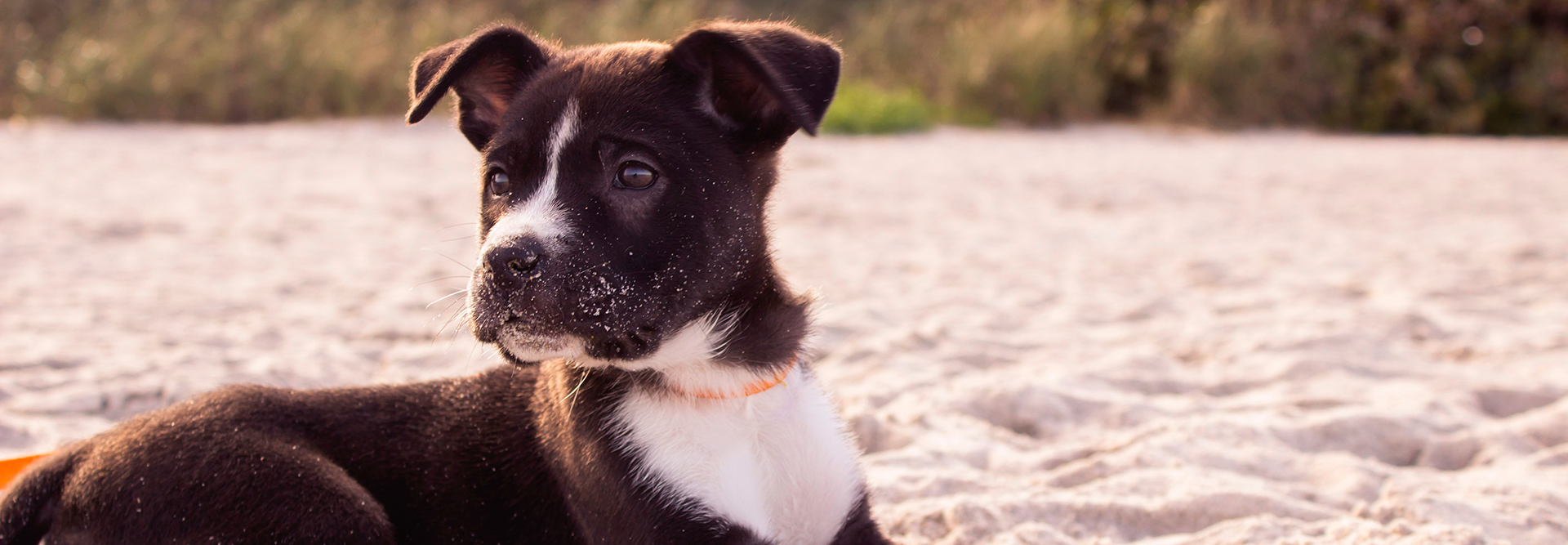
Congratulations! Your new puppy is finally home and ready to live a wonderful life with you. In the next few weeks, months, and years, you’ll learn everything about your little furball. However, like any other pet you bring home, your puppy is just starting to get to know you and your rules. This period of […]
Congratulations! Your new puppy is finally home and ready to live a wonderful life with you. In the next few weeks, months, and years, you’ll learn everything about your little furball.
However, like any other pet you bring home, your puppy is just starting to get to know you and your rules. This period of adjustment may take weeks or even months. To make it easier for you and your furry friend, it’s important to establish consistency and patience early on.
In this blog, we’ve uncovered some helpful tips that can help your puppy adjust to their new life with you. You don’t need to apply all of these rules all at once. Just test the waters with your puppy, take things slowly, and the rest will pan out!
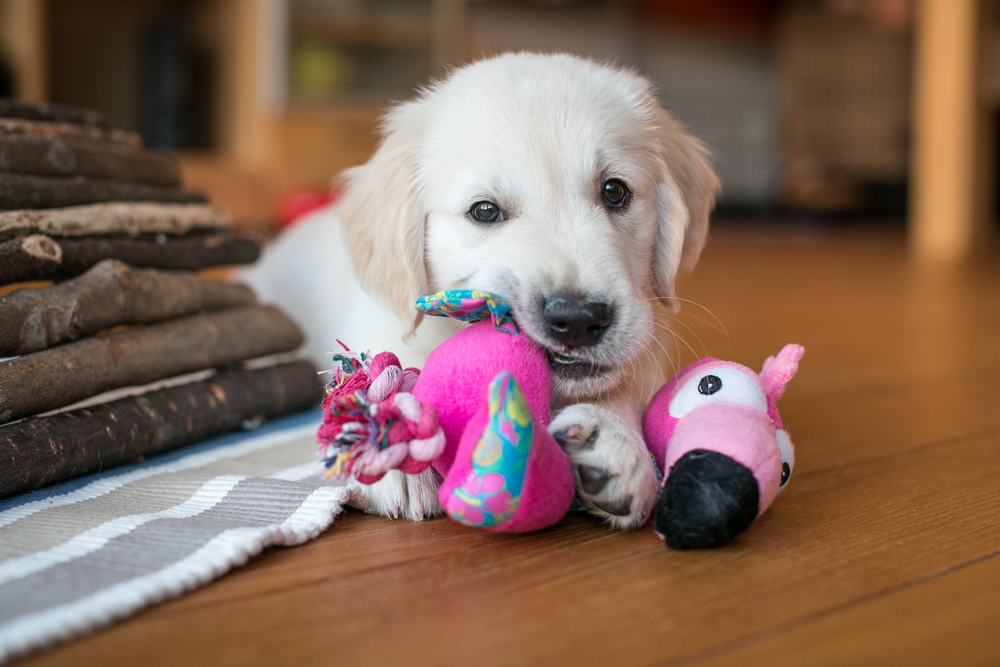
If you’ve ever been to an unfamiliar place, you know how frightening it can be. The same thing goes with your puppy. Puppies need a few days to explore and appreciate their surroundings.
Let your fur-baby roam as much as they want—as long as it’s completely puppy-proofed! Remember to close the doors of any rooms you don’t want your puppy to sneak in. Keep all medications and toxic plants in out-of-reach areas.
For more tips on puppy-proofing your house, check out our blog, How to Puppy Proof Your House. Other than that, don’t force your furry friend to play with you or do anything out of their comfort zone.
Your puppy may take a little longer to adjust to your home. If your puppy seems shy or overwhelmed, let them garner the curiosity to explore on their own. Make sure to comfort them if they run up to you for affection.
Also, remember that some dogs like the Chow Chow or the Shiba Inu are naturally standoffish or reserved. They may not warm up to you right away and..that’s okay! Learn to love and respect your pup’s boundaries and they will learn to reciprocate those feelings back!
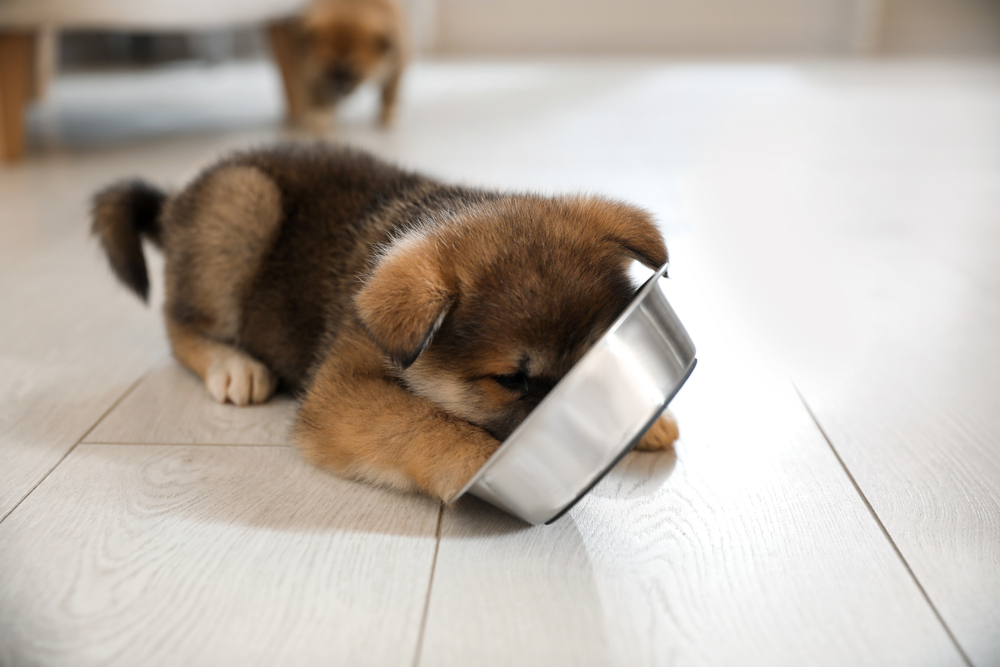
Because of stress, many puppies suffer from changes in appetite in the first couple of days. Also, your puppy may not like the food you are giving them, which causes them to lose interest in eating.
Give your puppy a few days to grow accustomed to the food you’re providing for them. Dogs can’t really starve themselves so sooner or later, they will eat what you give them. Make sure you choose the best food for your puppy. Puppies need a well-balanced diet to grow into well-rounded dogs.
Our blog, Choosing the Right Food for Your Puppy provides helpful tips for picking the right food for your little fur-baby.
Along with changes in appetite, your puppy may also suffer from diarrhea. This is normal for most puppies and is usually caused by stress or a new diet.
If your puppy exhibits diarrhea after more than a few days, talk to your veterinarian. They may suggest changing the type of food or performing other evaluations to determine its cause.
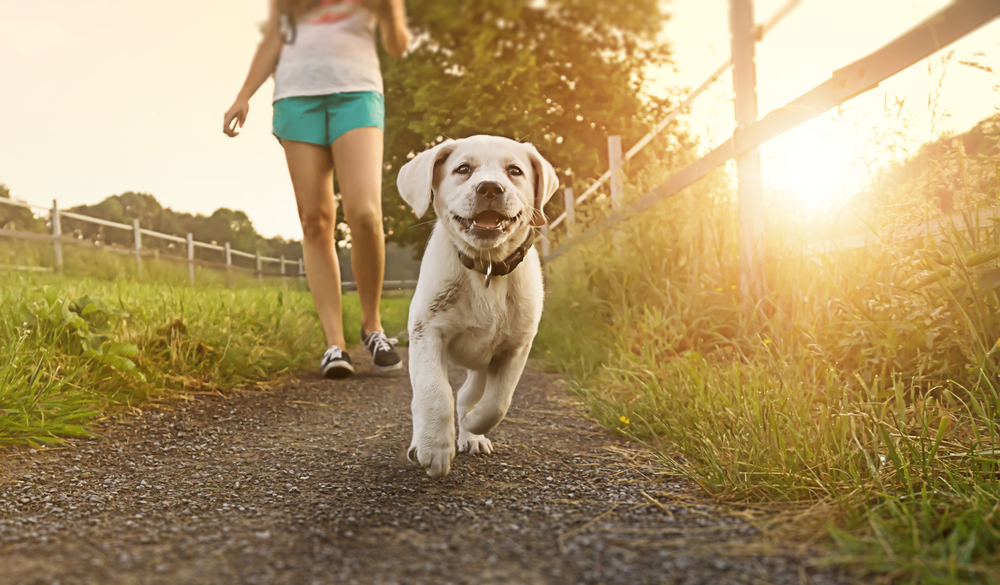
Like people, dogs love a consistent routine. Your puppy may not be accustomed to it but they need to learn how your home and lifestyle work as soon as possible.
Now, you don’t need to erase your previous routine; just add a couple of tasks throughout the day for your puppy’s wellbeing. This may include:
Puppies also love to cuddle and play with their owners so don’t forget to leave some time for that as well. Once your puppy catches onto your routine, it’ll be easier for them to adjust to you and their new home.
As previously mentioned, do not drop all of your normal activities. Keep them and continue your regular routine so that your puppy understands what’s expected of them.
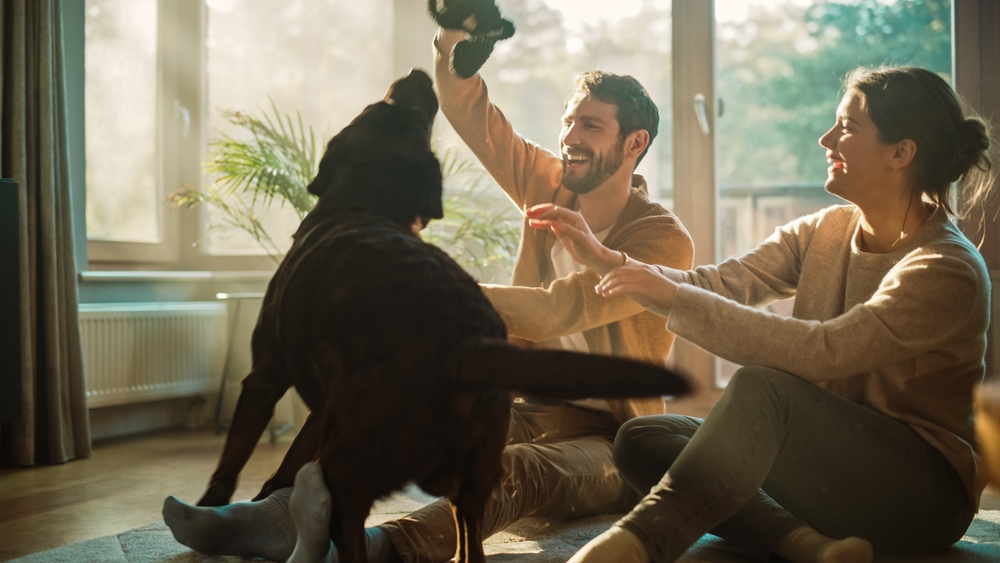
Socialization is a key part of a puppy’s development. Through socialization, a puppy learns how to interact with others so that they grow up to be well-mannered dogs, even with strangers.
For more information, The American Kennel Club has a fantastic article about puppy socialization and its different stages throughout puppyhood. Ideally, you should be introducing your furry friend to new sights and sounds as long as it’s safe to do so!
When introducing your family members, do not force your puppy to meet them as a group. This can frighten them, leading them to associate fear with your loved ones. Instead, introduce your pup to one person at a time.
Ask your family members to be gentle and quiet as they greet your puppy. Do not allow young children to grab or hold your puppy as this can lead to potential injuries.
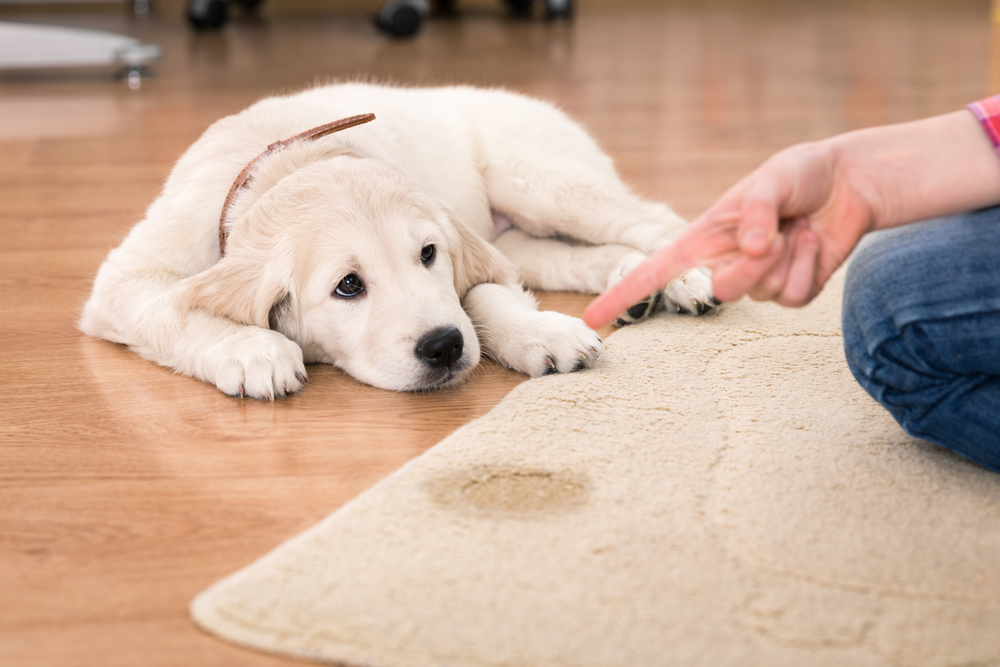
When it comes to your puppy’s development, socialization and training go hand in hand. There are many different ways you can train your puppy, but we recommend starting with the basics.
Your puppy needs to know when and where it’s appropriate to take potty breaks. They also need to know basic commands like “sit”, “stay”, or “come.” While most dog breeds are very intelligent, you need to start early before the wrong habits begin to settle in. Check out our blog, Dog Training 101: What You Need to Know for tips on how to train your puppy.
Be patient with your puppy during training. Some dog breeds like the Yorkie are independent and a little stubborn so it may take some effort before your puppy understands what you want from them.
There may be a few accidents here and there in your home. Just make sure they aren’t being overfed or drinking too much water before bed. Be ready to take your puppy out so they can have their potty breaks.
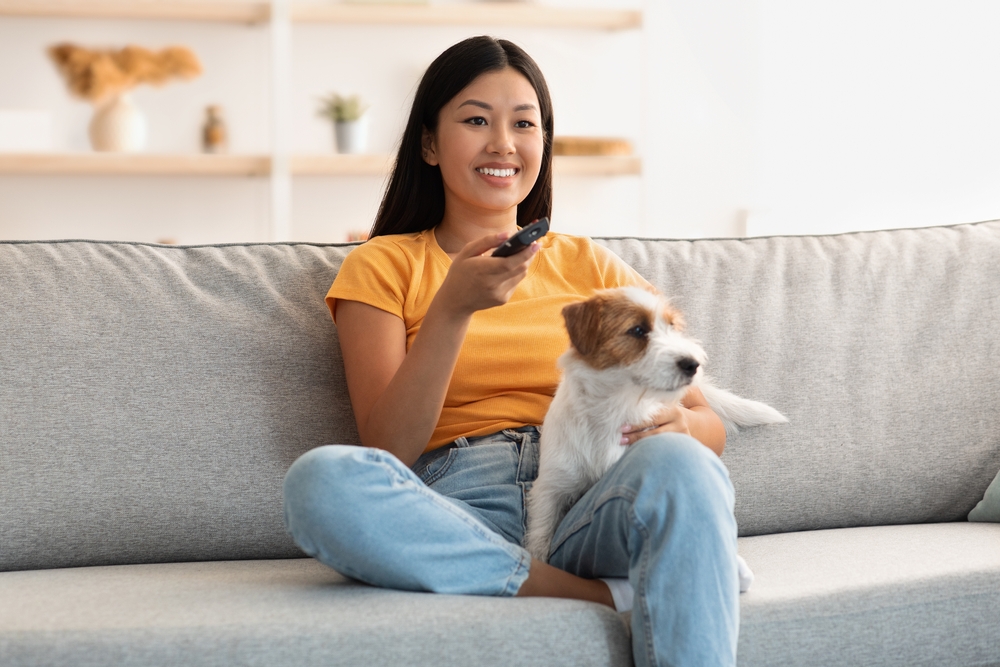
While your puppy explores your home, it’s highly recommended that you supervise them at all times. Puppies are sneaky, and if there’s an open trash bag within distance, they will stick their noses in them. They’ll also stick anything they find on the ground into their mouths.
Any of these situations can lead to upset tummies or other illnesses. If you’re a working owner, consider crate training your puppy. That way, they won’t get into any mischief while you’re away.
Crate training your new puppy can be tricky but there are more benefits to it than detractors. Just like any other training, introduce your pup to their new crate slowly. Don’t make it a negative experience for them.
Make it a cozy resting spot by adding bedding, pillows, or blankets. With time, it’ll be a place of relaxation and peace for your furry friend.
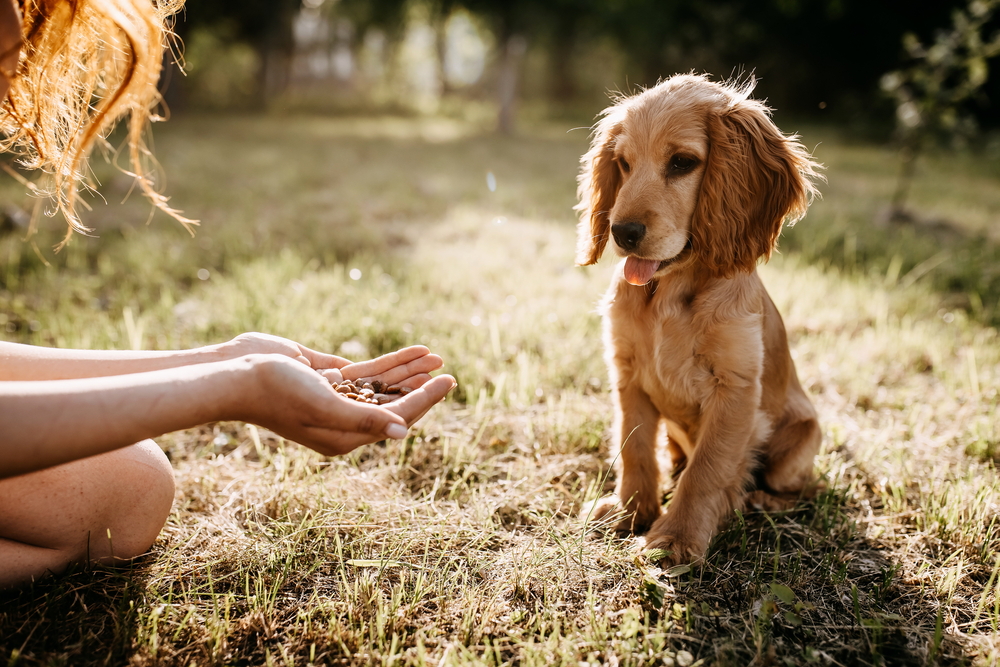
Remember that your puppy is probably scared of…everything! They may cry for their mother or companions for a few nights. They may accidentally pee or poop inside your home.
They may not display any affection towards you. That’s okay.
Give them time to get used to it all. Every dog has their own personality and background. Some dogs may only take a day to warm up to their new life while others take longer. Just take it slow and give them space.
If your puppy does mess up, don’t scold or hit them. This will only cause them to resent you or associate training with negativity. Give your puppy the time and attention they need. With enough patience, your puppy will become your fur-ever best friend!
Even when they’re small and growing, puppies have a personality of their own! Because there’s so much to puppyhood, the adjustment period often seems like a slow process.
Of course, because we already love our puppies so much, we want to hurry up the process and bond with them. Trust us, you need to let your puppy adjust at their own pace.
Take this time to reflect and encourage your puppy in the right direction so that they can grow to love you as much as you love them. It may take days, weeks, or even months, but the friendship and unconditional love you’ll gain with your puppy is worth it all!
Check out our blog, Top 6 Common Questions New Puppy Parents Ask to learn more about how to take good care of your puppy!